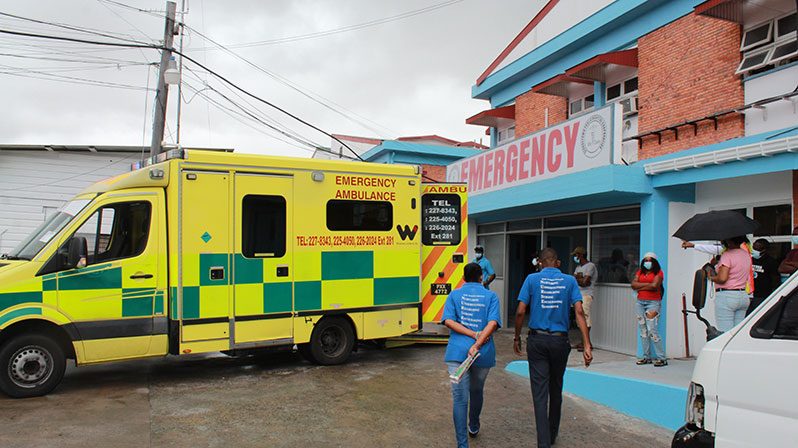WHILE navigating the COVID-19 pandemic is a feat that requires the concerted efforts of health authorities around the globe, Minister of Health, Dr. Frank Anthony, contended that the local health sector requires a disaster management unit that could streamline the response to future outbreaks and crises.
In an interview with the Guyana Chronicle ahead of Guyana’s first ‘COVID-19 Anniversary’, the Health Minister highlighted that the pandemic, as disruptive as it is, had resulted in the local health authorities learning several key lessons.
“From the health system point of view, we have learnt a lot of lessons and taking those forward, we would have to get a unit within the ministry to be able to constantly do epidemic management… a disaster management if you like,” the Health Minister underscored.
In an interview with the Guyana Chronicle last October, former Chief Medical Officer, Dr. Shamdeo Persaud, noted that Guyana faced numerous health crises over the years. During Dr. Persaud’s years of service before his retirement in 2020, there was a cholera outbreak in Region One (1992), a surge in tuberculosis and an HIV epidemic (early 1990s), the 2005 ‘Great Flood’ and the associated outbreak of leptospirosis, and, in more recent times, Guyana’s experience with Chikungunya.
Dr. Anthony explained that the earth is going to face a constant battle with microbes — the tiny living organisms found all over, some of which may be harmful to humans, and, as such, pandemics may appear from time to time.
“We have to be able to learn how to live with them and detect them early so that we can prevent (crises) from happening and prevent a lot of deaths and illnesses from happening,” the minister emphasised.
“The lessons we have learnt would be that we have to be prepared and we have to get our workforce trained to implement programmes very quickly and rapidly,” Dr. Anthony posited, further adding to the need for a disaster management unit.
Dr. Anthony took over the helm of the Health Ministry in August, 2020, five months after the first case of the novel coronavirus struck Guyana. Since then, he affirmed that Guyana has been able to strengthen the local health system by upgrading laboratories and regional hospitals, strengthen the procurement and distribution systems and enhance the capacity of doctors, particularly in the area of comorbidity management.
Comorbidities are of particular concern since persons with comorbidities are at a greater risk of becoming infected with COVID-19. Comorbidities are underlying and often undetected health issues such as cardiovascular diseases, respiratory illnesses and other Non-Communicable Diseases (NCDs) such as diabetes and cancers.
As Guyana contended with the COVID-19 pandemic over the past year, the health response has been guided by the National COVID-19 Task Force (NCTF), a body that was created in April 2020 and evolved over the subsequent months.




.png)









